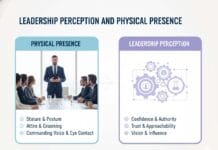
You’re climbing the corporate ladder, eyeing that coveted leadership role. The path ahead seems clear, but then a roadblock appears; experience alone isn’t enough to stand out. Enter professional certifications. With a reputation for demonstrating expertise and commitment, these credentials can be your ticket to advancing faster and farther.
But how exactly do they shape leadership trajectories, and why are they becoming an essential tool for upward mobility? Keep reading.
The Role of Certifications in Shaping Leadership Paths
Certifications serve as benchmarks for a leader’s skills and knowledge in their respective fields. While an MBA or other advanced degrees provide a foundation for leadership, professional certifications offer specialized expertise that enhances a leader’s capacity to manage complex challenges.
For example, certifications like the PMP demonstrate not only technical project management skills but also the ability to:
- Lead cross-functional teams
- Manage timelines
- Ensure project success
- Foster effective communication among stakeholders
- Adapt quickly to changing environments
Obtaining an SHRM certification signals a deep understanding of human resources management, which is crucial for those aiming for leadership roles that require managing teams, fostering a positive work culture, and ensuring compliance with labor laws.
Certifications and Upward Mobility: A Global Perspective
The impact of certifications on leadership trajectories varies depending on industry and geographical location, but a global trend points to a growing importance of formal qualifications. Leaders who hold certifications in specialized fields are seen as more qualified for senior roles. In emerging markets, certifications are becoming a key differentiator as professionals strive to demonstrate their competence on a global scale.
For instance, in the finance sector, the CPA certification is recognized as an essential qualification for senior-level roles. Obtaining this credential requires significant commitment, and an average of 7-8 years is typically needed to complete the licensing process. This extended timeline reflects the depth of expertise required to rise to the top in finance leadership. As such, professionals with this certification not only have the technical skills but also a proven track record of perseverance and long-term commitment, traits that are invaluable for leadership.
In other industries, the PMP certification offers a similarly long timeline for mastery and, consequently, greater recognition. With businesses increasingly focused on the efficient delivery of projects, leaders with this certification can take charge of large-scale initiatives, driving organizational growth while ensuring smooth operations across teams. This ability to manage complexity with strategic insight positions these leaders for rapid advancement within their companies.
Case Studies: Mentorship and Certification
Mentorship plays a pivotal role in how certifications impact leadership development. In many cases, individuals with certifications are mentored by seasoned leaders who have a similar qualification, creating a cycle of skill transfer and professional growth. Take, for instance, a young professional who earns their SHRM certification early in their career. Their mentor, a senior HR leader with decades of experience, can guide them through the intricacies of the role while offering insights into the nuances of leadership. This relationship not only provides career advice but also opens doors for promotions and new opportunities.
The value of mentorship extends beyond just learning the ropes of a particular job. It is about fostering leadership qualities like:
- Emotional intelligence
- Decision-making under pressure
- Interpersonal communication
- Risk management
As certifications lay the groundwork for these conversations, they also provide mentees with the confidence to take on more significant responsibilities and lead with authority.
Certifications as a Blueprint for Career Growth
One of the major advantages of pursuing professional certifications is the roadmap they provide for career advancement. The process of obtaining a certification is often structured, with clear guidelines for what is required at each stage.
Leaders who take advantage of this structured approach to professional development can better map out their career trajectories and plan for future opportunities.
For example, professionals may also complete continuing education courses and attend conferences that expand their network and deepen their understanding of industry trends.
Evolving Certification Timelines: Adapting to a Changing Landscape
The timelines for obtaining certifications are evolving. As industries change and new technologies emerge, professional bodies are refining their certification processes to ensure they remain relevant. For example, the timeline to become a CPA is no longer static.
Adjustments have been made in many regions to allow for faster accreditation in response to market demand. Similarly, project management certifications are being adapted to include emerging fields like agile and digital transformation, ensuring that certified professionals remain at the cutting edge of industry needs.
The Competitive Edge of Professional Certifications
Professional certifications are more than just credentials; they are essential tools for leadership development. By providing specialized knowledge, signaling expertise to employers, and offering a clear path for career growth, certifications lay the groundwork for upward mobility across industries.





